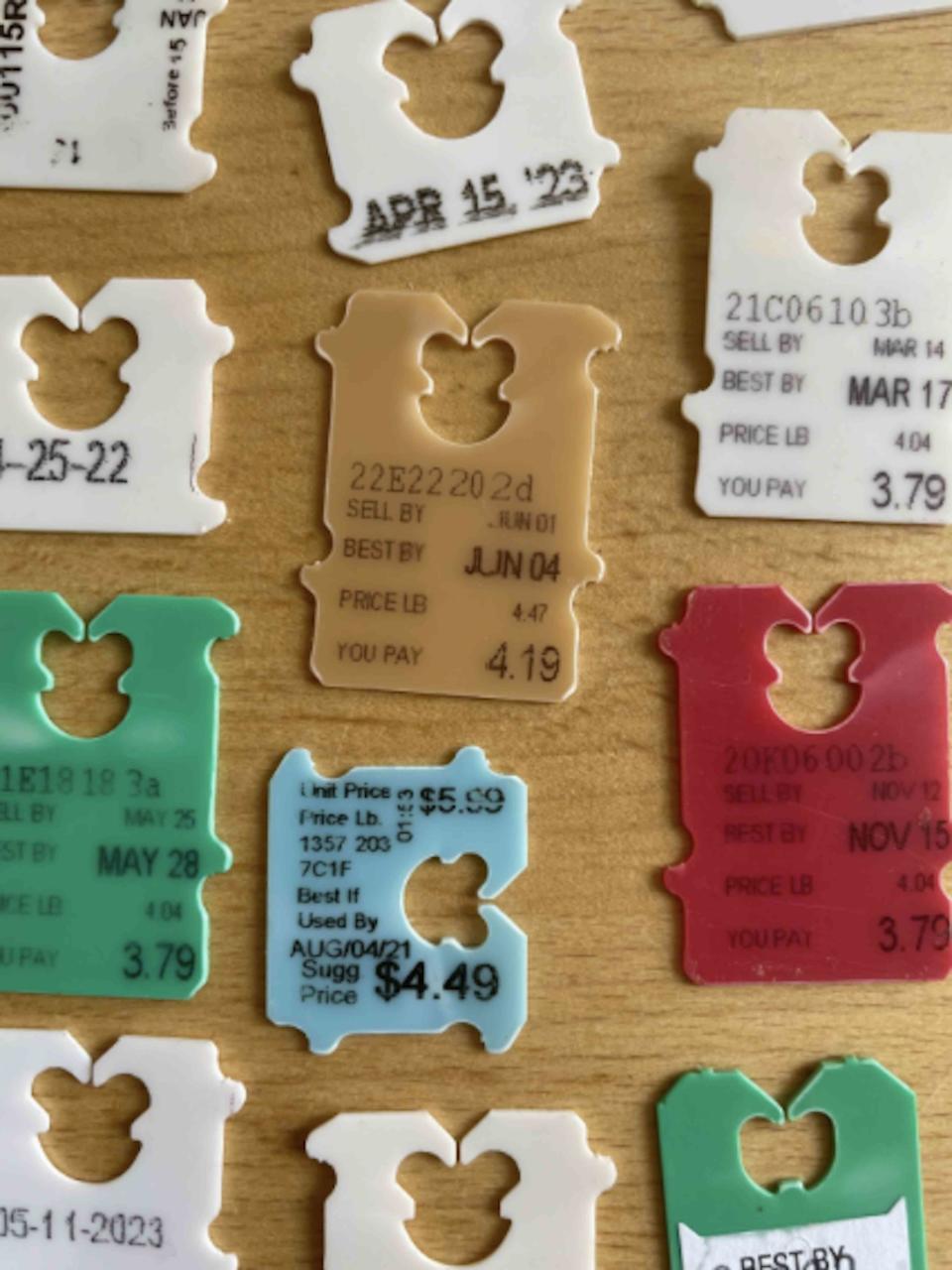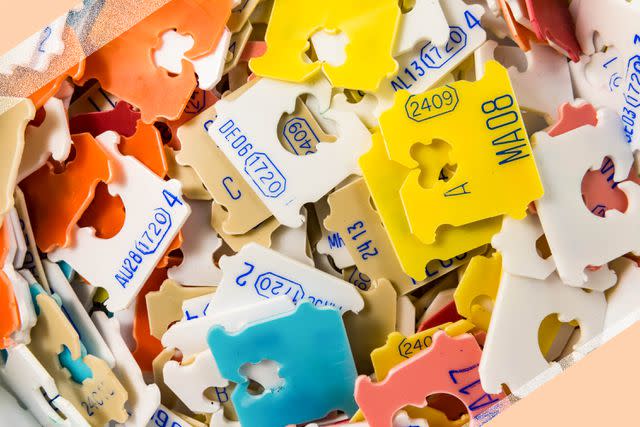I Fact-Checked the Colored Bread Tag Myth and Discovered the Truth
These tips will help you pick the freshest bread at your grocery store.

Simply Recipes / Lena Abraham
Writer Lena Abraham's bread tags.If you buy a lot of bread, chances are your kitchen junk drawer looks a little like mine: littered with colorful plastic tags once used to contain loaves of yore. These bread tags—also called bread tabs, bread ties, bread clips, or bread buckles—are typically a quadrangle with a hole on one side that is used to keep the bread bag closed. Some come printed with dates, prices, or indecipherable numerical codes, while others are blank.
What do these tags tell us about the bread they enclose? After an internet deep dive filled with conflicting information, I’ve discovered some useful tips that could help you select the freshest loaf from your grocery store. (Spoiler: You’ll have to do a little investigating of your own!)
What the Bread Tags Do NOT Mean
Let’s start by debunking the often-reported notion that the color of the bread tags indicate which day of the week the bread was baked. A blue tag for bread baked on Monday, a green tag for Tuesday, red for Wednesday, and so forth. You can see an example of this color coding on Snopes, a private fact-checking website.
As Snopes reports, this color-coding system is ostensibly used to help grocery store employees easily identify which loaves have been on the shelves too long and need to be rotated out and replaced with fresher bread. Unfortunately, it’s not that simple.
This color coding is not an industry standard, nor is it regulated. Every bakery has its labeling system that may or may not coincide with the days of the week shown on this chart. Also, it assumes that bakeries deliver five days a week—most don’t. Because of this, there’s no guarantee that you can locate the freshest bread using this coding system.

How To Find Out What the Colored Tags Mean
Luckily, with a little research, there is a way for you to decipher what these tags mean. First, you can speak to an employee at your local grocery store to see what its methods are for stocking bread. Many stores rotate their inventory every two to three days so that the baked goods are always fresh.
However, since each brand of bread uses its own labeling system, it’s likely the employee won’t be able to give you an easy answer to identify which bread is the freshest just by looking at the bread tags.
The true, fool-proof way to know with certainty what the different colored tags mean is to go directly to the source. Call up the company you buy bread from—their phone number is usually right on the bag or its website—and ask them what their bread tags indicate.
After doing this, I learned that my favorite brand of bread only uses white tags and that each one is printed with the expiration date. I thought it was the date the bread was baked! And that is how I found out that I was always buying bread on the day it expired. With this newfound information, I headed straight to the kitchen to slice and freeze my loaf before it became stale. The more you know, the more you reduce food waste and save money!
Read the original article on Simply Recipes.


